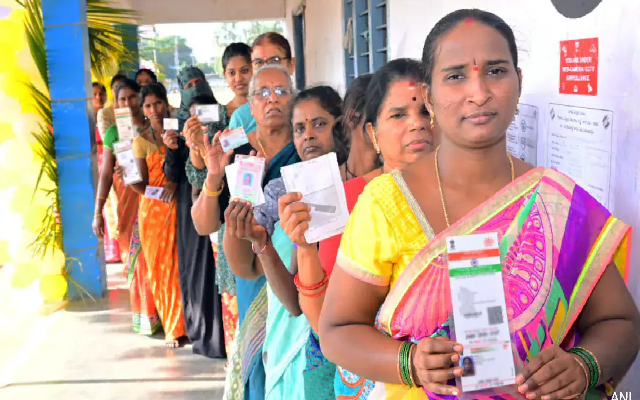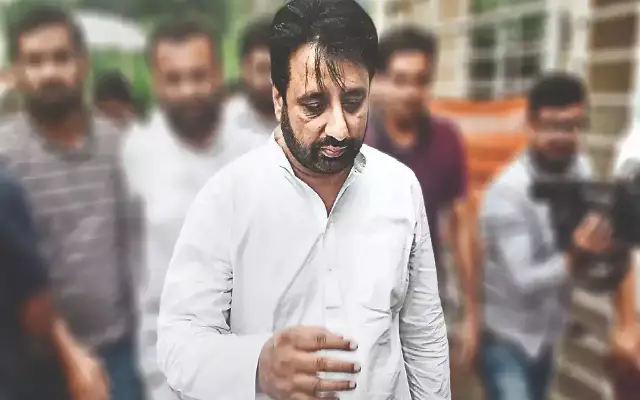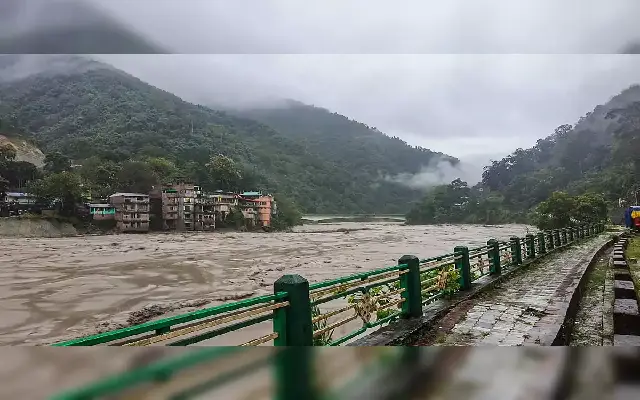 On Jul 01, 2020, as many as 39 senior police officers in Tamil Nadu were reassigned in what is being called a part of ‘routine and long overdue transfers’.
On Jul 01, 2020, as many as 39 senior police officers in Tamil Nadu were reassigned in what is being called a part of ‘routine and long overdue transfers’.
Incidentally, included in these transfers, are two senior officers who were placed on ‘Compulsory Wait’ by the Madras High court for trying to block investigations into custodial deaths of a father-son- duo in Tuticorin allegedly due to torture by the police. The Bench has stated that enough proof exists to proceed with a murder charge against the district police.
This is clear proof of how the state government used the powers legally available to it to protect its own interests in the case. Now let us see how the same approach is being used to suppress freedom of speech.
Journos in the dock
On Jun 22, 2020, an FIR was registered against Supriya Sharma under the Schedules Castes and Tribes Atrocities Act, Section 269 IPC(negligent act likely to spread infection and disease) and Section 502 IPC (Printing or engraving matter is known to be defamatory of any person). These offenses are supposed to have been committed when reporting on the sufferings faced by citizens of backward castes in Domari Village, Varanasi, a village adopted by the Prime Minister Narendra Modi after the COVID outbreak
The actions taken against her for this report published on June 8, 2020, are indicative of the way the process of the law has been used to throttle the freedom of the press.
Mala Devi, who as per the news report, stated to Supriya Sharma, about the suffering that she and her six children faced due to loss of work and earning during the lockdown, is then reported to have got back to the police stating that as she is having a regular job as an outsourcing cleaning staff (safai karamchari) and has faced no problem of feeding and caring for her family. She has alleged in the report she made to the police that she has been humiliated because of the report made out by Supriya Sharma and published by the editor of Scroll.in.
This is only one of several cases registered against journos. According to the RRAG, a Delhi based think tank, First Information Reports filed against 22 journos, under the IPC, Information Technology Act, Disaster Management Act, Motors Vehicles Act and Scheduled Tribes/Scheduled Castes (Prevention of Atrocities) Act and Unlawful Activities (Prevention) Act. Others have been allegedly subjected to arrest, summons, show cause notices, physical assault and destruction of personal property. RRAG has listed 55 such cases this year in its report published on 15th June.
These actions have been taken when the reporters have been allegedly reporting on mismanagement, corruption, and negligence at quarantine centers, shortage of PPE.
India slips in the Press Freedom index
In the 2020 Press Freedom Index List published in April 2020 by Reporters Without Borders, India has slipped 2 steps down to 142nd position out of a total of 180 countries listed. The Index is being published since 2002. Reporters Without Borders (RWB) is a Paris based independent NGO that has consultative status with UNESCO, United Nations, the Council of Europe, and the International Organization of the Francophonie.
Norway is ranked top in the Index for the fourth consecutive year while Finland and Denmark in second and third place. North Korea, not surprisingly is at the bottom-ranked at 180th. China is 177th, while Pakistan and Bangladesh follow India at 145 and 151. The top six places are occupied by European countries.
Suhas Chakm, the Director of the Rights and Risk Analysis Group (RRAG), said that India has become one of the riskiest places for journalists in the world.
In the words of Hon’ble Dr Justice Dhananjaya Yeshwant Chandrachud Judge of Supreme Court of India when addressing the Supreme Court Bar Association in Feb 2020, “the blanket labeling of dissent as anti-national or antidemocratic strikes at the heart of our commitment to protect constitutional values and the promotion of deliberative democracy.”
It can be seen clearly that the coercive actions have been taken to browbeat journalists into submission, only because they identified shortcomings in the performance and never for one moment expressed any dissent or disagreement with the priorities of the government.
Some of the cases listed by the RRAG also pertain to the coverage of the riots in Delhi and other places following the CAA bill and the COVID pandemic. The Press Council of India has taken up suo moto intervention in four of these cases, but the outcomes are anything but encouraging because of the ceaseless pressure to conform.
It may be observed that junior cadres of all political parties have been attacking the media to prevent it from functioning effectively. It would be for political parties to instruct their junior cadres to respect the law and use it the way it was intended to be used by our founding fathers.
Shooting the messenger
Supreme Court lawyer Colin Gonsalves speaking on the Livelaw Webinar on 30 June 2020 on ‘Shooting the messenger: The ‘Chilling Effect’ of Criminalising Journalism’ stated that FIRs have been registered against over 100 journalists in India for sedition. In this condition, he says that the expression of dissent, pointing out shortcomings, or even taking photographs has been charged as sedition, a concept introduced by the British to eliminate any chance of a revolt by Indians. Even after a call of dissent and bringing into contempt or hatred a government established by law, the physical action of taking up arms should be a minimum requirement for the law related to sedition to be applied. The way it is stated however leaves it open to a very wide interpretation of what is acceptable and what is chargeable under this provision. The way it is being used today in India, namely, if you say things that people in power find obnoxious or reprehensible then it would be sedition. He stated that even people taking photographs in the covid period have been charged with sedition.
Another concern he identified was Defamation Vs Freedom of Expression. Once a major corporation or a prominent person charges a journalist with defamation, collecting evidence, presenting it to courts, and with all the repeated adjournments that are a natural part of the judicial process, it would take years for the journalist to prove his innocence.
In a nutshell, he said that at present the principle of ‘Reputation trumps Defamation’ likely applies, so if anyone’s reputation is going to be hit, protecting that reputation would be more important for the court, than proving the accuracy of the report reporting the problem. Some benches have however accepted that correct reportage is equally important and promptly stayed defamation proceedings, however that is not yet uniformly established as a principle of law.
Conclusion
Seema Chishti, Deputy Editor, Indian Express believes that it is for journalists to use the press institutions available namely the Press Council, the Editors Guild, the National Broadcasters Association and even the NHRC to highlight such cases and use them for resolving issues.
Reacting to this, Supreme Court lawyer Colin Gonsalves observed that at present, journalists are very averse to any litigation, and journalists themselves getting together and bringing up such matters for review would go a long way in resolving them.
Taking any such case as a collective insult would enable it to be taken to the proper forum, instead of waiting for each affected journalist to take it up himself, level by level, till it is resolved. The best option would be to have a joint network including journalists, lawyers and judges that could monitor and react on such occurrences as they occur.
With legal recourse certainly available in the existing laws, journalists would only need to get more active and start using the existing laws for their benefit. A clear example is the NHRC, which has not played any major role in supporting such matters simply because it has never been asked to.
Seema Chishti, also clarified that if journalists don’t act for themselves, then bullies will trample their rights, wherever these bullies are, whether in government, in the police, judicial authorities, or even in your neighborhood.
The Supreme Court has come to the aid of Journalists several times making it clear that the journos role is to inform the people without bias. While Governments worldwide are naturally averse to such information especially when it is critical of them and their performance, they are not averse to using journalists and journalism to further their ends. And this paradox of the Journalist- Government relationship is what makes the profession a very tricky practice.
Social Media has come to the rescue of citizens and journalists alike who can now voice their views and give out information in their possession for the greater good over a platform that cannot be controlled by Governments. But that freedom, too, is under pressure and it won’t be long before commerce intrudes into its independence and that of information disseminators.
Challenges lie ahead, and the fourth estate has to gird its loins for the hard grind ahead.
This article is based on inputs from the following sources.
Journalists face persecution for highlighting peoples suffering
Major Reshuffle In Tamil Nadu, 4 Cities Get New Police Chiefs


















